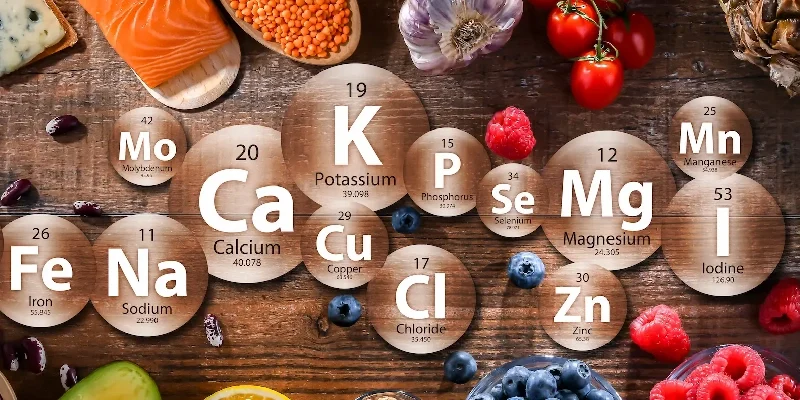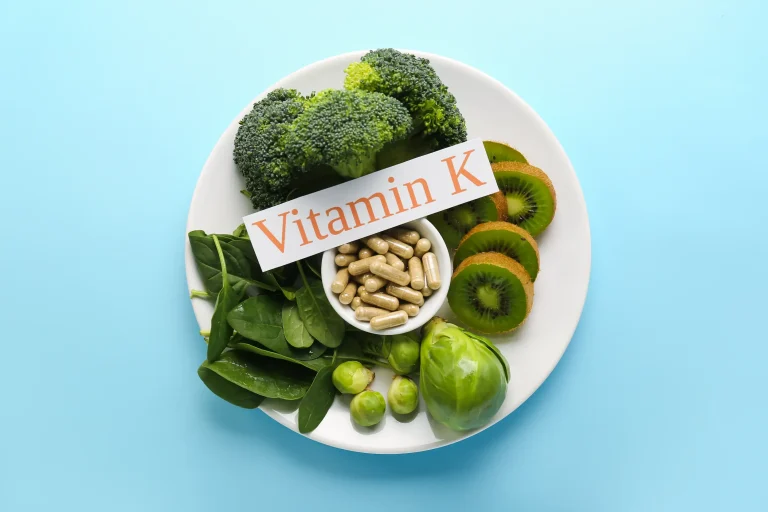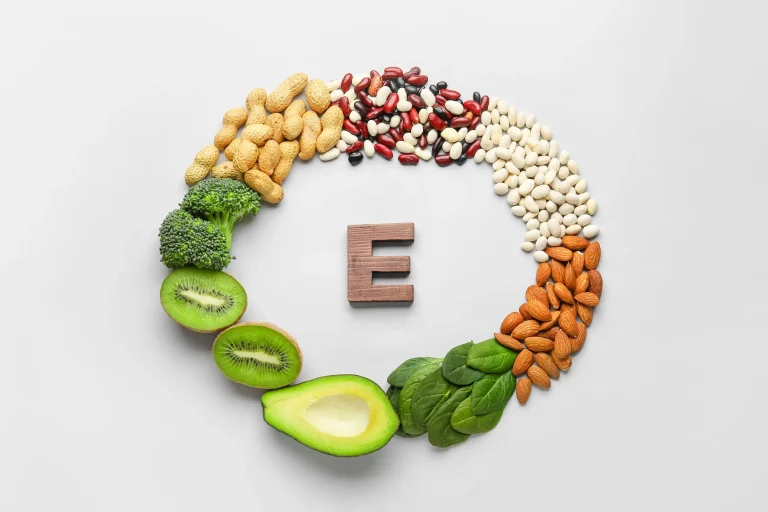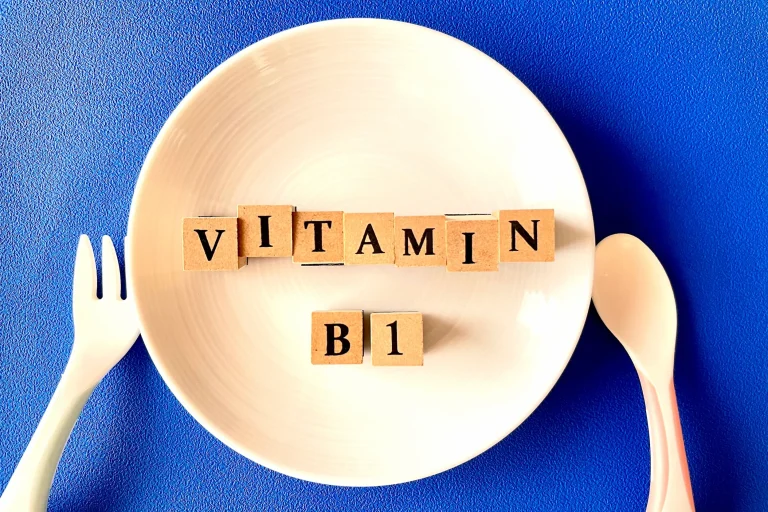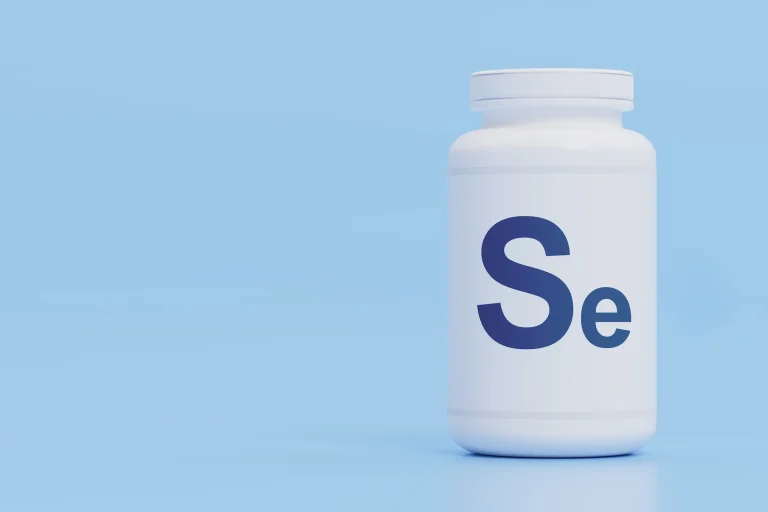How many minerals does the body need?
Minerals are inorganic trace elements that help to keep your body functioning as it should. These extremely important chemicals, which occur naturally within the food that we eat, are essential to millions of functions that keep you healthy and energetic. If you want to learn more about these valuable dietary nutrients or are just new to reading about mineral supplements, this page is a good place to begin.
What dietary minerals do you need?
Understanding each of the critical minerals’ functions can really help you to appreciate how important they are as part of your daily diet. While nearly all 40 minerals of nature have been found in the body, only around 25 have been identified as necessary for normal physiological processes – though that could change, with more and more research being conducted every year.[1] These minerals play various roles ranging from inducing muscle contraction and nerve impulses to ensuring bone health and immunity.[2]
Keep reading for a more detailed review of some of the most significant dietary minerals your body needs:
Calcium
Calcium is the most common mineral in your body, making up much of the structure in your teeth and bones as well as aiding movement by maintaining tissue hardness, strength and elasticity. In addition to its structural function, calcium contributes to normal muscle function (heartbeat regulation), blood clotting, nerve impulse transmission and digestive enzyme function.
Rich food sources are milk, yoghurt, cheese, leafy greens such as kale and broccoli and sardines or salmon canned with bones. Adults’ Recommended Dietary Allowances (RDAs) vary between 1,000 and 1,200 mg daily based on age.[4]
Iodine
Iodine supports normal thyroid function. Your thyroid gland uses iodine to make hormones that keep cells healthy and control your metabolism. Adults require an average of 140 micrograms (µg) of iodine daily, and you can usually get this from a varied diet.[5]
Iron
Iron is a vital part of haemoglobin, a protein inside red blood cells that carries oxygen from your lungs to tissues. It also assists in muscle metabolism and healthy connective tissue as a part of a compound called myoglobin. Iron supports normal energy metabolism, cognitive function, the immune system and the reduction of fatigue.
Heme iron is found in lean meat and seafood, while nonheme iron is found in nuts, beans, vegetables and fortified cereals. The Recommended Dietary Allowance (RDA) for adult males is 8 mg and in women aged 19-50 years, it is 18 mg.[6]
Chromium
Chromium is an ultra-trace element found in tiny quantities that plays a role in the breaking down of carbohydrates, fats and proteins for energy by potentially enhancing the effectiveness of insulin. In doing so, chromium contributes to the maintenance of normal glucose levels in the blood.
You can find chromium in a number of foods such as meats, grain cereals, fruits and vegetables, but to varying degrees. The Recommended Intake (RI) for adult women is 25 µg, and for adult men, it is 35 µg.[7]
Copper
Copper is a crucial mineral and also serves as a cofactor or ‘helper molecule’ to other enzymes. These enzymes play crucial roles in important processes including maintaining normal energy metabolism, iron transportation, hair and skin pigmentations and connective tissue.
Good sources of copper include shellfish, seeds, nuts and organ meats. Adults require approximately 900 µg of copper daily.[8]
Magnesium
Magnesium is a common mineral found in the body that acts as a cofactor for more than 300 enzyme systems. These enzyme systems support the normal function of a host of biochemical processes such as protein synthesis, nerve and muscle function, bone and teeth maintenance and energy-yielding metabolism function.
Good sources are green leafy vegetables, legumes, nuts, seeds and whole grains. Magnesium RDA of adult men is 400-420 mg, and of adult women is 310-320 mg.[9]
Manganese
Manganese is an ultra-trace element and acts as a cofactor for numerous enzymes involved in a variety of processes, contributing to bone maintenance, connective tissue formation, a normal metabolism and the protection of cells from oxidative stress.
Food sources are whole grains, nuts, legumes, green leafy vegetables and tea. Adequate Intake (AI) is 2.3 mg/day for adult males and 1.8 mg/day for adult females.[10]
Molybdenum
Molybdenum is a trace element that acts as a cofactor to four enzymes in your body. In doing so, molybdenum supports the normal metabolism of sulphur-containing amino acids.
Legumes, whole grains, nuts and beef liver are sources of molybdenum. The Recommended Dietary Allowance (RDA) in adults is 45 µg daily.[11]
Phosphorus
Phosphorus is the body’s second most prevalent mineral and supports healthy bone and tooth development. It’s also an integral part of DNA, RNA, and ATP (adenosine triphosphate), the body’s energy currency. On top of that, phosphorus is involved in cell membrane structure and other processes.
You can get phosphorus from nearly all food sources that contain protein such as milk, meat, fish and baked foods. The Recommended Dietary Allowance (RDA) for adults is 700 mg/day.[12]
Potassium
Potassium contributes to a variety of processes in your body, including normal nerve and muscle function and the maintenance of a healthy blood pressure.
Fortunately, potassium is found in the majority of fruits, such as dried apricots, bananas and oranges, and in vegetables like potatoes, spinach and broccoli. Lentils, beans, nuts, milk and meat are also good sources. The daily requirement of potassium for the body varies from person to person, but men generally need around 3,400 mg and women 2,600 mg.[13]
Selenium
Selenium is an ultra-trace element and a component of 25 selenoproteins which contribute to critical functions in the thyroid, hair and nail maintenance, production of sperm cells, immune function and defence against oxidative damage.[14]
Protein-rich foods like Brazil nuts, seafood, meat, poultry and organ meats have the highest concentration of selenium. The Recommended Dietary Allowance (RDA) for adults is 55 µg/day.[14]
Zinc
Zinc supports immune function, vision, blood testosterone levels, cellular development and the maintenance of normal hair, skin, bones and nails. It also contributes to the normal metabolism of macronutrients, fatty acids and vitamin A, as well as helping to maintain normal cognitive and reproductive function.
Oysters, red meats, poultry, beans, nuts, some seafood and dairy foods are rich in zinc. The daily recommended allowance for adult males is 11 mg per day, and for adult females, it is 8 mg per day.[15]
How to get all the minerals you need
For most people, a healthy, balanced diet should be enough to provide you with all your essential minerals. Eating a variety of foods in moderation, such as whole grains, low-fat dairy, meat, fruits and vegetables, can prevent mineral nutrient deficiencies.[3]
However, there are circumstances under which it may be difficult to get all your required minerals from the diet alone. For instance:
Vegetarians and Vegans: Iron and zinc are more common or more easily available in animal foods, so anyone who doesn’t eat animal products may find it more difficult to get enough of these essential minerals from their diet.
Problems of Absorption: Mineral absorption from foods may be impacted by some diseases or medications.
Illness: If you’re recovering from a period of sickness or have a chronic condition, you may need higher levels of certain nutrients to support your health.
Poor Nutrition: A diet that doesn’t vary and misses out key mineral sources, or one that depends almost entirely on processed foods, may not provide enough of the required minerals.
Severe Physical Exercise: Athletes and anyone who is extremely active may require more minerals to support their increased activity levels.[2]
If any of these factors affect you, mineral supplementation – such as a multi-mineral complex that contains a variety of minerals – can be an excellent way to ensure you get all the minerals you need to support your overall health and wellbeing. Always consult with a healthcare professional or registered dietitian before starting any new supplement programme to check it’s the best solution for your individual needs.
References
[1] Saha, S., & Pathak, N. (2021). Mineral Nutrition. Journal of Pharmacognosy and Phytochemistry, 10(4), 1-5.
[2] Williams, M. H. (2005). Dietary Supplements and Sports Performance: Minerals. Journal of the International Society of Sports Nutrition, 2(1), 43-49.
[3] Gupta, U., & Gupta, S. C. (2014). Sources and Deficiency Diseases of Mineral Nutrients in Human Health and Nutrition: A Review. Pedosphere, 24(1), 1-18.
[4] National Institutes of Health, Office of Dietary Supplements. (n.d.). Calcium: Fact Sheet for Health Professionals. Retrieved from https://ods.od.nih.gov/factsheets/Calcium-HealthProfessional/
[5] NHS. (n.d.). Iodine. Retrieved from https://www.nhs.uk/conditions/vitamins-and-minerals/iodine/
[6] National Institutes of Health, Office of Dietary Supplements. (n.d.). Iron: Fact Sheet for Health Professionals. Retrieved from https://ods.od.nih.gov/factsheets/Iron-HealthProfessional/
[7] National Institutes of Health, Office of Dietary Supplements. (n.d.). Chromium: Fact Sheet for Health Professionals. Retrieved from https://ods.od.nih.gov/factsheets/Chromium-HealthProfessional/
[8] National Institutes of Health, Office of Dietary Supplements. (n.d.). Copper: Fact Sheet for Health Professionals. Retrieved from https://ods.od.nih.gov/factsheets/Copper-HealthProfessional/
[9] National Institutes of Health, Office of Dietary Supplements. (n.d.). Magnesium: Fact Sheet for Health Professionals. Retrieved from https://ods.od.nih.gov/factsheets/Magnesium-HealthProfessional/
[10] National Institutes of Health, Office of Dietary Supplements. (n.d.). Manganese: Fact Sheet for Health Professionals. Retrieved from https://ods.od.nih.gov/factsheets/Manganese-HealthProfessional/
[11] National Institutes of Health, Office of Dietary Supplements. (n.d.). Molybdenum: Fact Sheet for Health Professionals. Retrieved from https://ods.od.nih.gov/factsheets/Molybdenum-HealthProfessional/
[12] National Institutes of Health, Office of Dietary Supplements. (n.d.). Phosphorus: Fact Sheet for Health Professionals. Retrieved from https://ods.od.nih.gov/factsheets/Phosphorus-HealthProfessional/
[13] National Institutes of Health, Office of Dietary Supplements. (n.d.). Potassium: Fact Sheet for Consumers. Retrieved from https://ods.od.nih.gov/factsheets/Potassium-Consumer/
[14] National Institutes of Health, Office of Dietary Supplements. (n.d.). Selenium: Fact Sheet for Health Professionals. Retrieved from https://ods.od.nih.gov/factsheets/Selenium-HealthProfessional/
[15] National Institutes of Health, Office of Dietary Supplements. (n.d.). Zinc: Fact Sheet for Health Professionals. Retrieved from https://ods.od.nih.gov/factsheets/Zinc-HealthProfessional/
